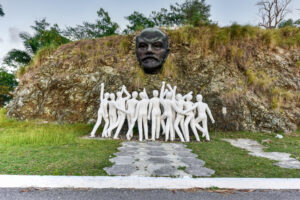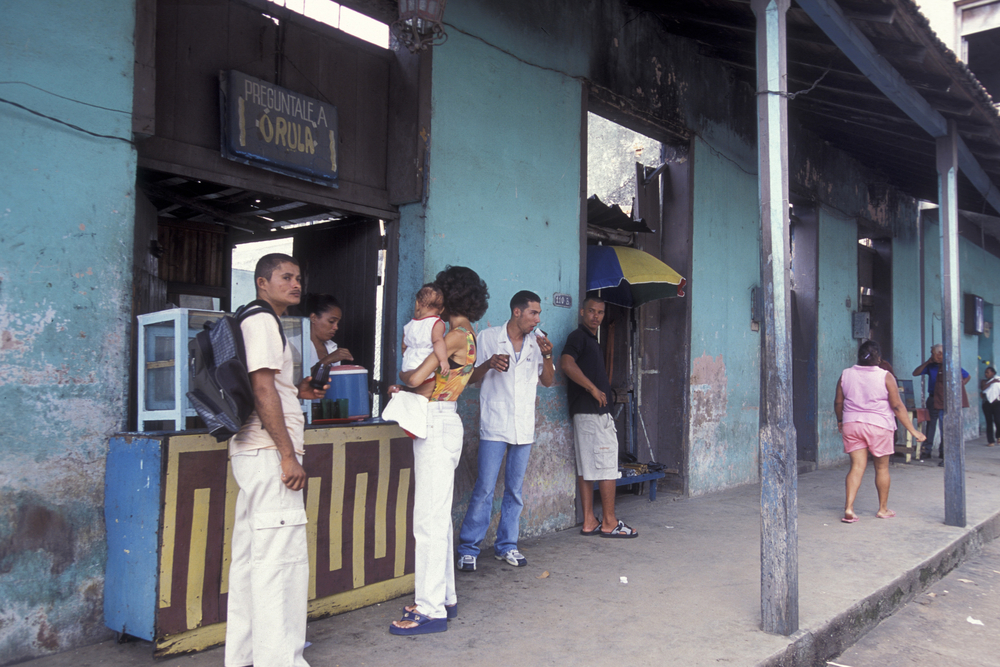The invention of the concept of rent-seeking has made a powerful impact on economic science. Comparative economics, especially the study of economic transitions, has been particularly affected as rent-seeking nicely explains the behavior and institutions involved in the processes and unintended consequences of transitioning to different economic systems. For this reason, the case of Cuba is perfect to be explained in terms of rent-seeking and the search for privileges.
The idea of rent-seeking – as described expertly by David R. Henderson – is that entrepreneurs obtain certain benefits and privileges via the political arena. Rent-seeking behavior can include everything from tariffs or subsidies protecting a specific interest group, to patents and licenses.
The choice to engage in rent-seeking is rational when the expected costs of wealth transfers via political pursuits are lower than those of engaging in the market process. In modern economics, rent-seeking is categorized as a zero-sum game or wasteful behavior. Rent-seekers do not create value through production; they instead capture wealth from other entrepreneurs, possibly wasting resources and destroying wealth in the process.
In contrast, market entrepreneurs make their wealth by producing the best quality goods at the lowest and most affordable prices. And, in the eye of comparative advantage and specialization from trade, they secure this wealth through mutually beneficial trade with the consumers and other sellers. In other words, gains from trade.
It is here where entrepreneurs and rent-seekers diverge, while they are both entrepreneurs in the pursuit of profit, only market entrepreneurs profit by making society better off. However, their addition to the wealth stock is different.
Despite being a net drain on society, rent-seeking never ceases to exist, though it differs from country to country. Such variations result from differences in institutional arrangements which determine how profitable rent-seeking activity is and, therefore, how much occurs. As the American economist William Baumol put it, “Changes in the rules and other attendant circumstances can, of course, modify the composition of the class of entrepreneurs and can also alter its size.” When the rule of law is absent, and the law is unpredictable, not applicable to everyone, and unequal, rent-seeking reigns freely.
Once rent-seeking has been connected to the concept of institutions, we may propose a case study to explain the phenomena of economic transitions. With the recent approval of a law that legalizes small and midsize enterprises, many commentators have claimed that capitalism might be returning to Cuba. Although this claim must not be outright discredited, clarifying the true state of affairs is still necessary.
In the political economy of Cuba, the rule of law is absent, property rights are not protected, and legal exchanges often cannot take place – these factors conspire to make a free market impossible. Moreover, allocating property rights via political means could never be considered capitalism, as it substitutes political competition for competition in the market sphere market. Put differently, Cubans are not competing in the market but for the right to enter it. Moreover, the 18th article of the Cuban constitution states that:
While the Cuban government might have changed the players, the rules of the game, that is, the institutions, have stayed the same. Even Gil Fernandez, Cuba’s Economic minister, has stated that Cuba is still a centrally planned economy despite the recent market-oriented laws. This phenomenon is similar to the Perestroika period in the Soviet Union, as Peter Boettke pointed out in his book Calculation and Coordination:
Putting aside the fact that these enterprises will play a secondary role in the economy, the legal, financial, and economic regulations they face impose substantial expected costs on entrepreneurs on the island. The Decree Law 46/2021 introduces a myriad of regulations seemingly aimed at regulating the emerging private sector, but which, in practice, often result in undue restrictions on private initiatives. These restrictions extend to the number of employees and partners an enterprise can have and the sectors they are allowed to operate in. Nonresident individuals and legal entities, including potential investors, grapple with stringent limitations when initiating a business venture. Such limitations prioritize residents, thus narrowing the field of potential participants.
An overarching concern emerges with the incorporation of small and midsize companies, as the process is subject to the Ministry of Economy and Planning approval. This requirement inadvertently fosters an environment conducive to rent-seeking, wherein political connections become a means to secure approval rather than the strength of the business proposition. This phenomenon further increases the expected costs of engaging in the market. Moreover, the tax regulations, which are intended to provide a revenue stream for the government, are not tailored to facilitate a straightforward path for entrepreneurs to achieve profitability. Consequently, this intricate tax system adds to the already onerous burden of entrepreneurship, exacerbating the gap between the costs of engaging in legitimate market activities and those of seeking political favor.
Another critical confusion is the assumption that the liberalization of some limited and regulated markets indicates a free market—in fact, nothing is further from reality. The presence of some consumer markets does not indicate capitalism if the state lacks the very institutions needed to be capitalist. Another question to ask, considering this law of small and midsize enterprises, is if everyone can even open one of these newly legal companies in the first place? It is hard to believe that Cuba would allow any of its 1037 political prisoners or their family members to open an enterprise.
Not even Cuba’s financial press can be trusted to provide an accurate account of what’s happening, as they, too, have experienced political pressure, as evidenced by the many constraints placed upon elToque, who has been reporting the exchange rates between the Cuban peso and the U.S. dollar. The official statistics are hard to acquire and even harder to believe; in many instances, the time series that the Cuban government publishes are either non-accessible or nonexistent. This makes it more challenging to prove that Cuba is transitioning to a market or market-friendly economy.

So far, the expectations for the Cuban economy are an economic transition a la Russia. In fact, Cuba has been seeking the advice of Russian officials and economists to provide the structural changes the economy needs to be more productive or at least more connected to rational economic calculation.
The concept of rent-seeking has proven to be a valuable lens for understanding economic transitions, exemplified in the Cuban case. The distinction between rent-seekers and market entrepreneurs highlights the contrasting paths to wealth creation and societal impact. The analysis of Cuba’s economic situation reveals the persistent challenges of institutional constraints and central planning. As the country embarks on potential changes, careful evaluation of rent-seeking behaviors and their consequences remains essential to gauge Cuba’s economic future trajectory.
Carlos Martinez is a Cuban American undergraduate student attending Rockford University. He is pursuing a BS in financial economics. Currently, he holds an Associate of Arts degree in economics and data analysis.


READER COMMENTS
Richard W Fulmer
Aug 28 2023 at 2:20pm
Why is this? Both rent-seeking and theft are considered zero-sum games, but that makes sense only if one puts on blinders and considers a single transaction in isolation. In a dynamic world – the world we inhabit – both are negative-sum games because people change their behavior in response to the incentives that such transactions create.
In the case of theft, people buy locks, safes, alarm systems, bars for their windows, and weapons. In short, they use scarce resources that have alternative uses, not to make their lives better, but to keep them from getting worse.
Similarly, rent-seeking, or at least successful rent-seeking, encourages other individuals and companies to use scarce resources to lobby government rather than to produce more products or create new ones. Laws and regulations passed in response to lobbyists tend to reduce competition rather than enhance it.
diz
Aug 31 2023 at 3:38pm
One of the strange things you tend to read about Cuba is for decades now it seems like every time there is an economic hardship of some sort they respond with “market reforms.” It seems to indicate they understand there is a relationship between functioning markets and prosperity, but can’t seem to make it a permanent feature — or even a temporary feature unless there is duress. I get that there is some incentive to cling to power, but you’d think at some point they’d be tempted to actually have a decent economy.
Comments are closed.